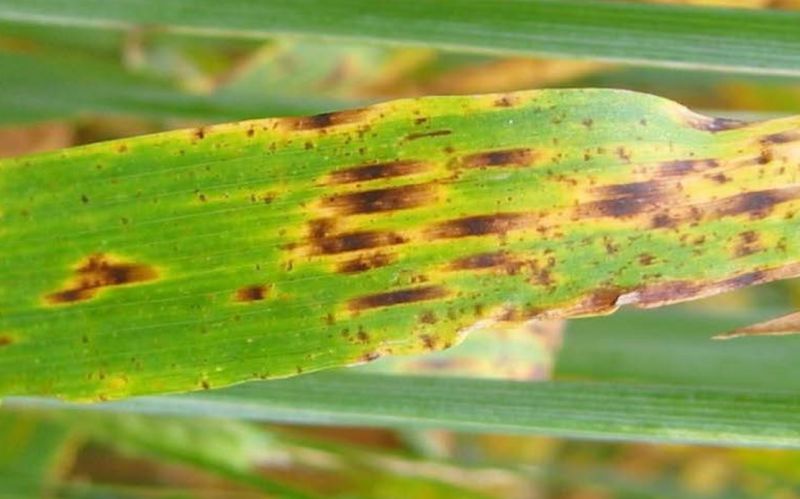
The European Commission's decision to vote against renewing the approval of fungicide chlorothalonil will 'rob' farmers of a 'vital' plant protection product.
Chlorothalonil – the active ingredient in Bravo – will not be renewed after member states of the EU’s Standing Committee on Plants, Animals, Food and Feed (SCoPAFF) voted to ban it.
However, products containing chlorothalonil are already in use this growing season across the UK.
The decision follows the European Chemicals Agency’s classification of chlorothalonil as a category 1 carcinogen, following on from the European Food Standards Agency making a similar recommendation.
Chairman of NFU Scotland’s Combinable Crops Committee, Ian Sands, who owns and contract farms just under 2000 acres in Perthshire, said the decision is a 'mass set-back'.
He said the ban has 'huge potential' to effect the whole of the Scottish food and drink industry.
“Growers like myself will find it very hard to understand why a product that has been in use since 1964 is now deemed to be unsafe,” Mr Sands said.
“Without doubt, this product is the main stay of fungal disease control in Scotland’s largest and most important crop, barley, where it is the only effective tool available for the control of ramularia leaf spot.”
A bad infestation can cause a fall in yield of 0.6 tonnes per hectare, equivalent to more than 10 percent of crop lost, Mr Sands notes.
Ramularia also impairs quality and can increase screenings, hitting those who are growing for a quality market like malt whisky.
He added: “Chlorothalonil is also an important fungicide to protect other crops such as wheat, both by itself and mixed with other products to manage disease resistance, and alternatives are nowhere near as effective.
“With the number of plant protection products available to growers shrinking, the loss of chlorothalonil has the potential to make the viability of growing crops border line and given the huge importance of barley and wheat to the Scottish drinks industry, this could cause serious problems for this iconic sector.
“Factor in that this product is still going to be allowed to be used in other countries out with the EU, then this is disastrous for our growers,” Mr Sands said.
